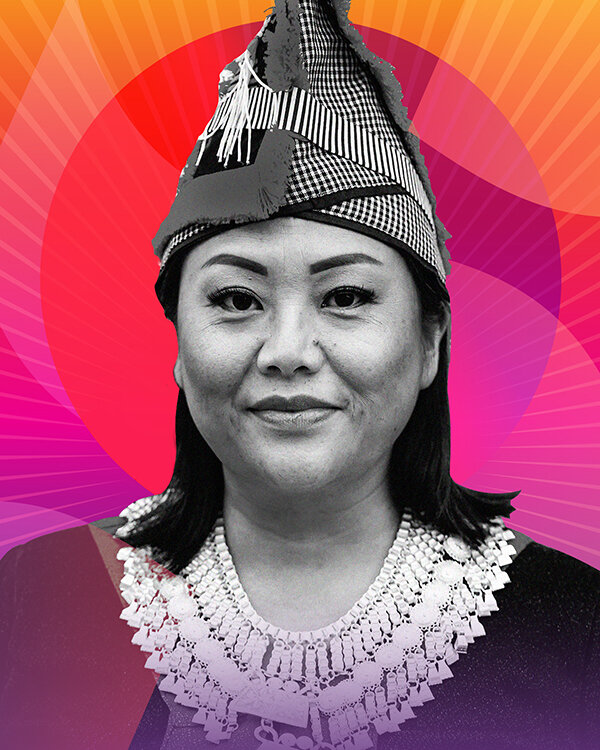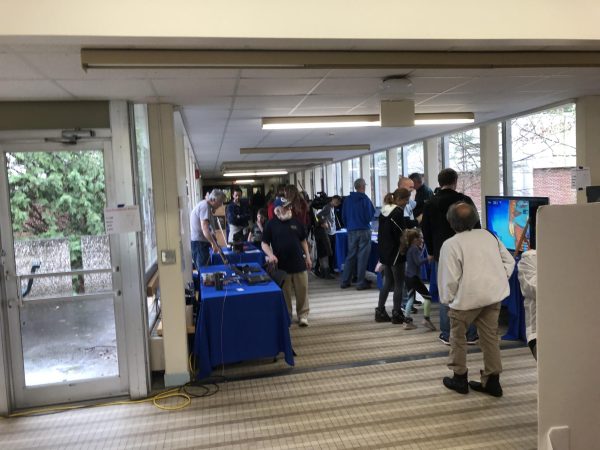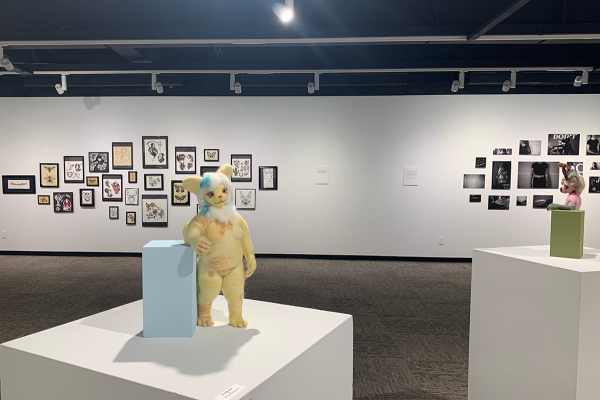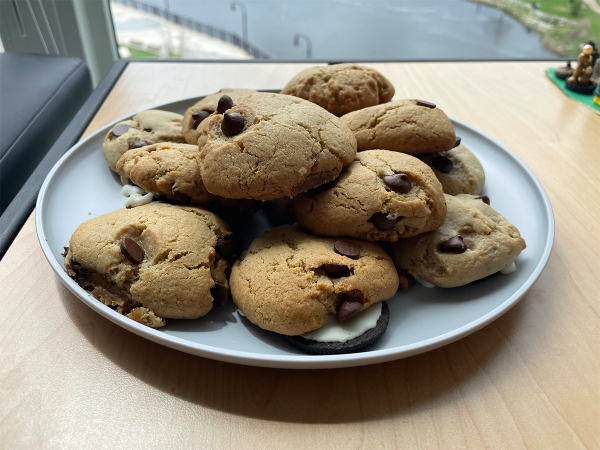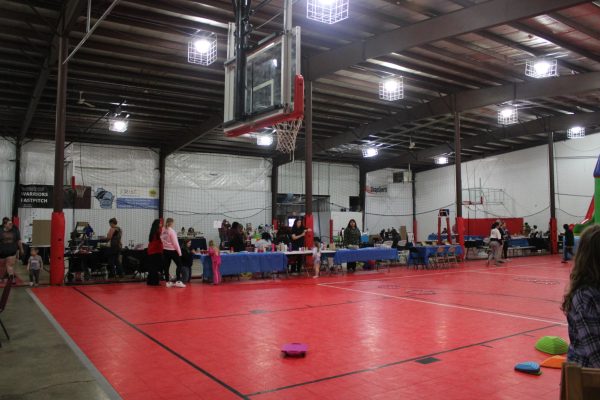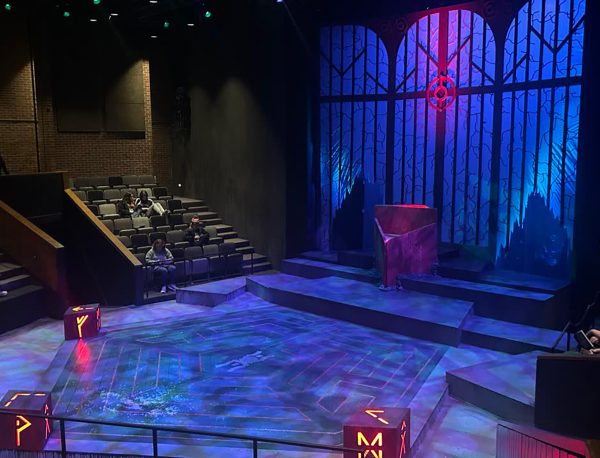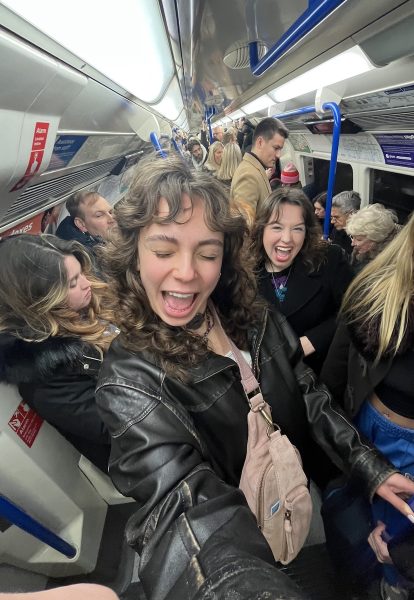Forum speaker discusses racial and gender justice through a Hmong feminist lens
Kabzuag Vaj shares lessons learned from social justice movements with UW-Eau Claire campus
Photo by SUBMITTED
Kazuab Vaj shares what she’s learned after 20 years of experience in building movements dedicated to solidarity in social justice through gender justice inquiry.
On Monday, March 6, the Martin Mogensen Education Lecture Series was continued through a presentation by Kabzuag Vaj.
Her keynote forum, “Organizing for Racial and Gender Justice in an era of Trumpism through a Hmong Feminist Lens,” shared the lessons she has learned in her 20 years of involvement in social justice movements.
Vaj began the forum by telling viewers about her background as a female-identifying Hmong immigrant in America.
Born at the end of the Vietnam War in Laos, Vaj had her first run-in with adversity early on in life. As a result of the Vietnam War, “Laos had become one of the most heavily bombed nations in the world,” Vaj said.
Due to the constant barrage, Vaj’s mother suffered from malnutrition, which led to her own malnutrition at birth. Her father had been airlifted to a refugee camp in Thailand after the war.
Vaj, however, alongside her mother and siblings, had to walk to the camp.
A few years later, they were resettled to the south side of Madison, Wis. in the United States.
“My journey into this world was pretty rocky. But, as you can all see, the beginning of your life doesn’t always necessarily mean that’s the way that it’s going to be,” Vaj said.
She then introduced the concept of “justice lenses.” Vaj said, “That means in every aspect of my life, I look at it from a woman’s perspective, from a little girl’s perspective.”
Growing up in a Hmong household, where there are many gender-specific roles, Vaj had many opportunities to apply this lens.
Vaj remembered, though not knowing the proper terminology then, feeling injustice when she was very young — specifically, at family gatherings.
“Hmong families would always have these celebrations where the women would cook all day and set the table. Often during those days, the men would eat first, and the women and children would eat second,” Vaj said.
One day, she said to herself that she was tired of eating after the men and her brothers: what would happen if she ate before them? That is what she did.
Seeking justice, though she didn’t realize it at the time, Vaj took her plate of food and ate it silently in the kitchen before the rest.
“I was eating for myself; I was eating for my mom; I was eating for my sister; I was eating for my aunties,” Vaj said.
Vaj was able to identify the misogynistic aspects of her culture and challenge them; however, the act of acknowledgment is not as simple as it seems.
Claudia Lecher, a second-year business student, attended the event for a women’s, gender and sexuality studies course she is taking this semester.
Lecher said she was certain she had dealt with gender discrimination within her lifetime but was reminded of the expansive discrimination that occurs amongst women who identify as a person of color.
“I feel like growing up, that was something people got very much used to and just went along with,” Lecher said. “There was never anything super drastic — more like little things that most women probably live with on a day-to-day.”
These microaggressions that can easily get swept under the rug are what Vaj seeks to challenge with her activism, Lecher said.
Since that day in her childhood kitchen, Vaj has continued her search for justice by starting several organizations including Freedom Inc.
Freedom Inc. is a Black and Southeast Asian organization dedicated toward “achieving social justice through coupling direct services with leadership development and community organizing,” according to the Freedom, Inc website.
Vaj is also the co-founder of Building Our Future, a campaign working to change traditional customs that contribute to gender-based violence within the Hmong community — while also building necessary leadership skills in women and young girls.
Additionally, Vaj is the co-owner and co-founder of Red Green Rivers, “a social enterprise that works with artisan makers, most of whom are women and girls, from the Mekong Region in Southeast Asia.”
Vaj said many have asked how she was able to build solidarity across both racial and gender lines in intergenerational solidarity — and how her own past experiences have shaped her empathy toward intersectional issues.
“The history of Hmong people and their struggles helped me to understand and empathize with oppressed people,” Vaj said.
Growing up on the south side of Madison — and in Philadelphia when she was older — Vaj said she was a witness to the oppression of not just Hmong people, but of Black people as well.
“Because we were resettled in some of the poorest neighborhoods of Black and brown folks, Hmong and Southeast Asian, Cambodian and Vietnamese, we were also disproportionately affected by the war on drugs,” Vaj said. “Eventually, we’ve learned, it was always a war on the poor.”
Lecher said she found this point in the forum to be very eye-opening. One of the aspects she found most interesting about Vaj’s talk was learning about her experiences, which are a sharp contrast from her own.
“The fact that her close family was facing possible deportation and how that was basically a life sentence for refugees was so crazy to think about,” Lecher said. “People spend so much of their lives trying to get a new start, but then despite all that hard work, they can get sent back for potentially small reasons.”
In closing, Vaj discussed the importance of allyship and how in turn, it may not be the best way for people to go about showing their support for others.
Lecher said she found this to be a powerful way to finish the discussion and is something we all need to remember during these times.
“(Vaj) talked about how being an ally can be more of a performative act. I do something for you, you do something for me,” Lecher said. “It’s more about being a family, making sure you’re always there for each other, not picking and choosing those times.”
Schutte can be reached at [email protected]
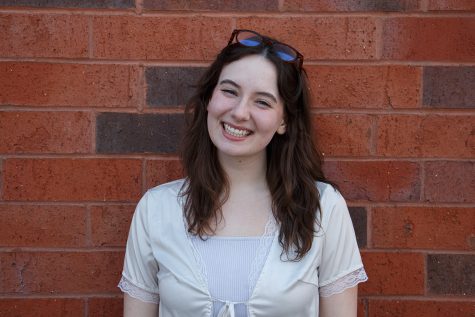
Grace Schutte is a fourth-year creative writing and Spanish student. This is her fifth semester on staff, having previously served as a staff writer, Chief Copy Editor, a freelance writer, Currents Editor, and now as the OP/ED Editor. She is currently daydreaming about living softly. She is very content.

